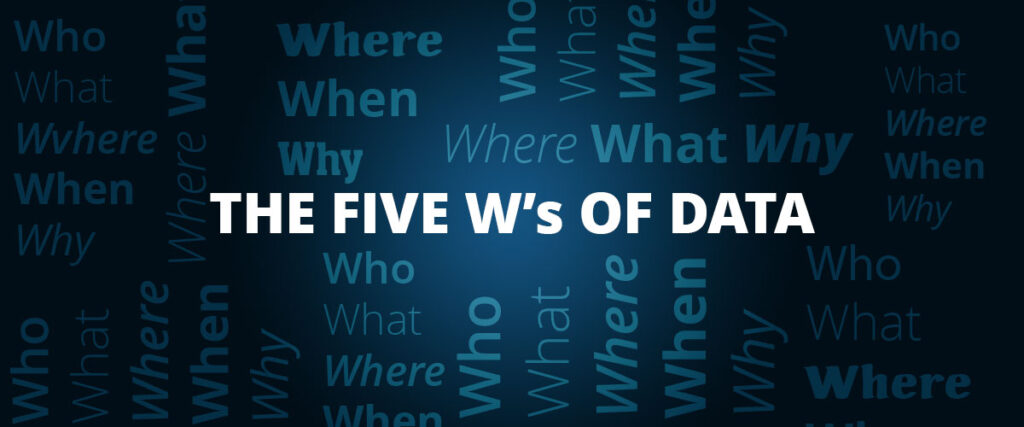The 5 W's of Data: What You Need to Know

Data is the lifeblood of the modern digital age, driving decision-making, innovation, and insights across industries. To effectively harness the power of data, it's essential to understand the 5 W's: Who, What, Where, When, and Why. Let's dive into each of these aspects:
- WHO
- Definition: Who refers to the individuals or entities responsible for generating, collecting, and managing data.
- Importance: Knowing who is involved helps establish data ownership and accountability.
- Example: In a business context, employees, customers, and partners can all be data generators.
- WHAT
- Definition: What encompasses the type and nature of data, including structured (e.g., numbers, categories) and unstructured (e.g., text, images) data.
- Importance: Understanding what data you have enables you to determine its value and potential use.
- Example: Customer purchase history, website traffic logs, and social media posts are examples of different data types.
- WHERE
- Definition: Where indicates the location and storage of data, whether on-premises or in the cloud.
- Importance: Data location affects accessibility, security, and compliance.
- Example: Data stored in a secure cloud platform like AWS or Azure.
- WHEN
- Definition: When related to the timing of data collection, including real-time, batch, or historical data.
- Importance: Knowing when data is collected helps analyze trends and make timely decisions.
- Example: Stock market data is collected in real-time, while annual financial reports are historical data.
- WHY
- Definition: Why delves into the purpose and goals behind collecting and using data.
- Importance: Understanding the motivation behind data collection ensures alignment with business objectives.
- Example: A company may collect customer feedback data to improve product quality and customer satisfaction.
In conclusion, mastering the 5 W's of data is crucial for effective data management, analytics, and decision-making. By addressing these key questions, organizations can unlock the full potential of their data resources. Remember, data isn't just about numbers; it's about insights, innovation, and driving positive outcomes.
Sources
- WebsiteX5 - How to create a blog with the 5Ws
- Boldon James - The 5 W's of Data Identification and Inventory
- LSE Blogs - Using the 5 Ws to communicate your research
- Search Engine Journal - The 5 W's for Great Content Marketers
- Bigwave - Need To Know: The 5 W's Of Analytics
- Adobe Business - 5 Ws (and 1 H) To Be Asked of Every Project










